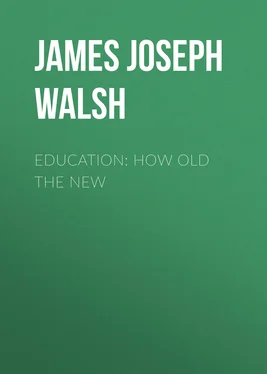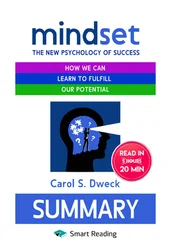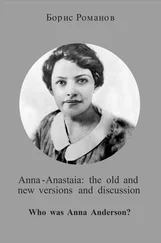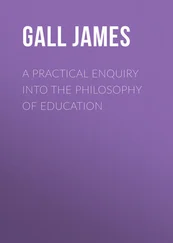James Walsh - Education - How Old The New
Здесь есть возможность читать онлайн «James Walsh - Education - How Old The New» — ознакомительный отрывок электронной книги совершенно бесплатно, а после прочтения отрывка купить полную версию. В некоторых случаях можно слушать аудио, скачать через торрент в формате fb2 и присутствует краткое содержание. Жанр: foreign_prose, foreign_edu, foreign_antique, на английском языке. Описание произведения, (предисловие) а так же отзывы посетителей доступны на портале библиотеки ЛибКат.
- Название:Education: How Old The New
- Автор:
- Жанр:
- Год:неизвестен
- ISBN:нет данных
- Рейтинг книги:3 / 5. Голосов: 1
-
Избранное:Добавить в избранное
- Отзывы:
-
Ваша оценка:
- 60
- 1
- 2
- 3
- 4
- 5
Education: How Old The New: краткое содержание, описание и аннотация
Предлагаем к чтению аннотацию, описание, краткое содержание или предисловие (зависит от того, что написал сам автор книги «Education: How Old The New»). Если вы не нашли необходимую информацию о книге — напишите в комментариях, мы постараемся отыскать её.
Education: How Old The New — читать онлайн ознакомительный отрывок
Ниже представлен текст книги, разбитый по страницам. Система сохранения места последней прочитанной страницы, позволяет с удобством читать онлайн бесплатно книгу «Education: How Old The New», без необходимости каждый раз заново искать на чём Вы остановились. Поставьте закладку, и сможете в любой момент перейти на страницу, на которой закончили чтение.
Интервал:
Закладка:
There is another monument at Sakkara that is of special interest to us in its consideration of old-time medicine. I discussed it and its inscriptions in the Journal of the American Medical Association (Nov. 8, 1907). It is the tomb of a surgeon, decorated within with pictures of surgical operations. The grandeur of the tomb and its location show us that the surgeon must have held a very prominent place in the community of that time. The date of this tomb is not later than 2500 B.C. Certain of the surgical operations resembled those done at the present time. There is the opening of a carbuncle at the back of the neck which shows how old are men's diseases and the modes of their treatment. After this the oldest monument in the history of medicine is documentary, the Ebers Papyrus, the writing of which is probably not much later than 1700 B.C. This consists, moreover, of a collection of older texts and suggestions in medicine, and some of the idioms are said to belong to several distant periods. It is probable that certain portions of this papyrus were composed not much later than the oldest book in the world, and that they date from nearly 3000 B.C. This papyrus is as interesting and as startling in its anticipation of some of our modern medical wisdom as is the Instruction of Ptah Hotep in the practical wisdom of life. This seems a good deal to say, but there is ample evidence for it.
According to Dr. Carl von Klein, who discussed the "Medical Features of the Ebers Papyrus" in some detail in the Journal of the American Medical Association about five years ago, over 700 different substances are mentioned as of remedial value in this old-time medical work. There is scarcely a disease of any important organ with which we are familiar in the modern time that is not mentioned here. While the significance of diseases of such organs as the spleen, the ductless glands, and the appendix was of course missed, nearly every other pathological condition was either expressly named or at least hinted at. The papyrus insists very much on the value of history-taking in medicine, and hints that the reason why physicians fail to cure is often because they have not studied their cases sufficiently. While the treatment was mainly symptomatic, it was not more so than is a great deal of therapeutics at the present time, even in the regular school of medicine. The number and variety of their remedies and of their modes of administering them is so marvellous, that I prefer to quote Dr. von Klein's enumeration of them for you:
"In this papyrus are mentioned over 700 different substances from the animal, vegetable and mineral kingdoms which act as stimulants, sedatives, motor excitants, motor depressants, narcotics, hypnotics, analgesics, anodynes, antispasmodics, mydriatics, myotics, expectorants, tonics, dentifrices, sialogogues, antisialics, refrigerants, emetics, antiemetics, carminatives, cathartics, purgatives, astringents, cholagogues, anthelmintics, restoratives, haematics, alteratives, antipyretics, antiphlogistics, antiperiodics, diuretics, diluents, diaphoretics, sudorifics, anhydrotics, emmenagogues, oxytocics, ecbolics, galactagogues, irritants, escharotics, caustics, styptics, haemostatics, emollients, demulcents, protectives, antizymotics, disinfectants, deodorants, parasiticides, antidotes and antagonists."
Scarcely less interesting than the variety of remedies were their methods of administration:
"Medicines are directed to be administered internally in the form of decoctions, infusions, injections, pills, tablets, troches, capsules, powders, potions and inhalations; and externally, as lotions, ointments, plasters, etc. They are to be eaten, drunk, masticated or swallowed, to be taken often once only–often for many days–and the time is occasionally designated–to be taken mornings, evenings or at bedtime. Formulas to disguise bad tasting medicaments are also given." We have no advantages over the early Egyptians even in elegant prescribing.
The traditions with regard to Egyptian medicine which came to the Greeks seemed so incredible as we found them in the older historians that they used to be joked about. Herodotus came in for a good deal of this scoffing. He was said to be entirely too credulous and prone to exaggerate in order to add interest to his history, but every advance in our knowledge in modern time has confirmed what Herodotus has to say. In the eighteenth century Voltaire said of him, "The Father of history, nay, rather the Father of lies." That was Voltaire's way. Anything that was above him he scoffed at. Homer was a wandering minstrel such as you might find in the streets of Paris, Dante was a mediaeval barbarian, our own Shakespeare was a dramatic butcher, producing his effects by bloodshed and cruelty upon the stage. The nineteenth century has reversed Voltaire in every point of this, though some still listen to him in other matters. Above all, Herodotus has been amply justified by modern investigations. Herodotus tells us of the tradition of the number of different kinds of medical specialists in existence among the Egyptians. We are very prone to think that specialism is a development of modern medicine. What we know of Egypt shows us how old it is and makes it very clear that there must have been specialized modes of medical education for these many doctors who treated only very limited portions of the body and no other.
Herodotus tells us, to quote for you the quaint English of one of the old translations:
"Physicke is so studied and practised with the Egyptians that every disease hath his several physician, who striveth to excell in healing that one disease and not to be expert in curing many. Whereof it cometh that every corner of that country is full of physicians. Some for the eyes, others for the head, many for the teeth, not a few for the stomach and the inwards."
The Ebers Papyrus shows us that the specialties were by no means scantily developed. We have traditions of operations upon the nose, of remedies for the eyes there are many and the diagnosis and treatment of eye diseases are rather well developed. The filling of teeth seems even to have been practised, 5 5 Burdett: "History of Hospitals."
and while the traditions in this matter are a little dubious, the evidence has been accepted by some good authorities. This specialism in Egyptian medicine probably existed long before Herodotus, for he seems to speak of it as a very old-time institution in his time, and indeed Egypt had degenerated so much that it would be hard to believe that there was any such development there in his time. In the old temples they seem to have used many modes of treatment that we are likely to think of as very modern. Music for instance was used to soothe the worried, amusements of various kinds were employed to influence the disturbed mind favorably. In many ways some of the old temples resembled our modern health resorts. To them many patients flocked and were treated and talked about their ailments and went back each year for "the cure" once more, all the while being more benefited, as is true also in our own time, by the regularity of life, the regulation of diet and the mental influence of the place, than by any of the drugs or even the curative waters.
In a word, our study of old Egypt and Egyptian education shows us men doing things just about the way that our generation does them and succeeding just about as well as we succeed. They taught writing, spelling and composition as we do and the moral content of their teaching is admirable. They had training schools for the arts and crafts, their taste is better than ours in many things, above all, they trained workmen very well, and the remains of their achievements are still the subject of our admiration. They solved mechanical problems in the building of the pyramids quite as well as we do. They made enough experiments that we would call chemical, to find enduring pigments for decorative purposes and they succeeded in making tools that enabled them to carve stonework beautifully. Even their professional education was not very different from our own and its results, particularly in the line of specialism, are startling anticipations of the most modern phase of medicine. They anticipated our interests in psychotherapy and some of them were mental healers, and more of them used the influence of the mind on the body than our physicians have been accustomed to until very recent years. Their physicians and surgeons were held in the highest veneration, and what we know of them shows that the judgment of the old Egyptians in this matter was very good and better than the average appreciation of physicians at the present time.
Читать дальшеИнтервал:
Закладка:
Похожие книги на «Education: How Old The New»
Представляем Вашему вниманию похожие книги на «Education: How Old The New» списком для выбора. Мы отобрали схожую по названию и смыслу литературу в надежде предоставить читателям больше вариантов отыскать новые, интересные, ещё непрочитанные произведения.
Обсуждение, отзывы о книге «Education: How Old The New» и просто собственные мнения читателей. Оставьте ваши комментарии, напишите, что Вы думаете о произведении, его смысле или главных героях. Укажите что конкретно понравилось, а что нет, и почему Вы так считаете.












